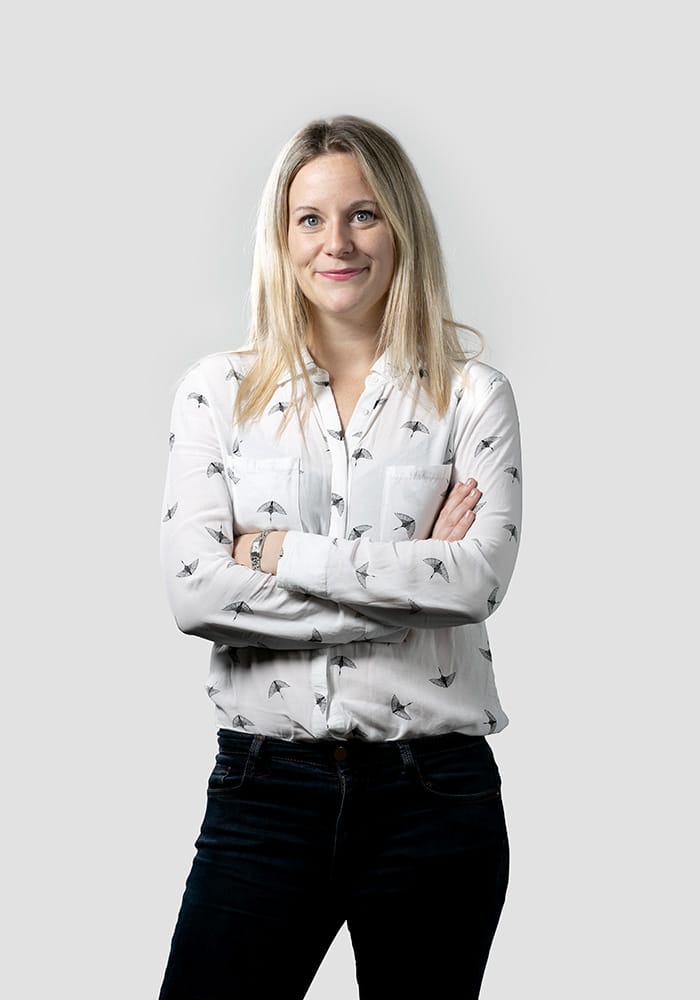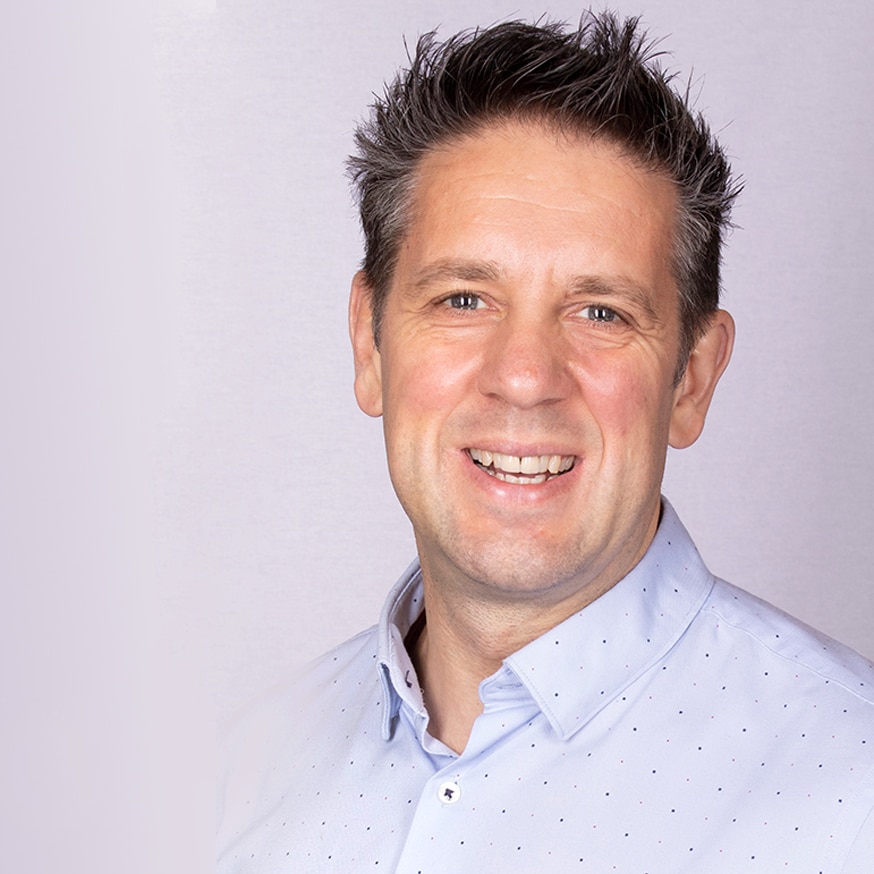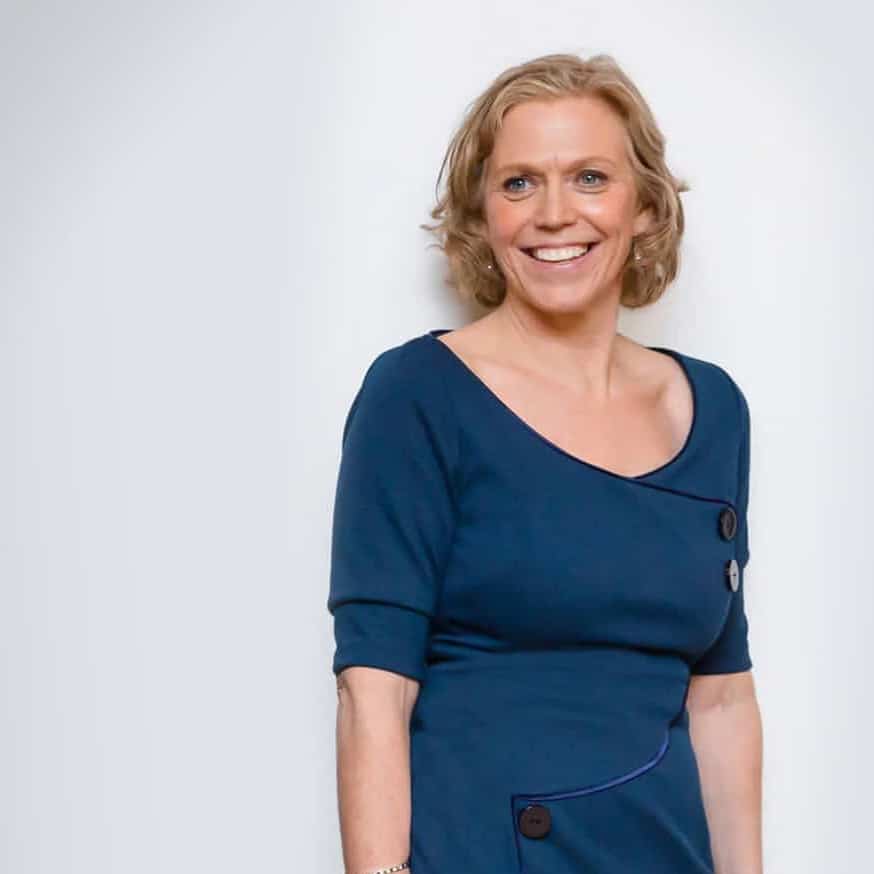
Get the wrong people off the bus, get the right people in the right seats
"In the ten years I've been running Yoyo, we have never had an absolutely defined structure with perfectly defined seats"
Jenny Kitchen | Co-founder | Yoyo Design
Questions:
> How would you explain what “get the wrong people off the bus, get the right people into the right seats” means?
> What do you think about this ‘advice’?
> Would you give this advice to other people?
> What steps does Jenny Kitchen go through before deciding someone is ‘wrong’ for her company?
How would you explain what “get the wrong people off the bus, get the right people into the right seats” means?
I heard this advice in the early days of building Yoyo, and I have used it as a guide ever since. Simply put, you should identify the seats that you need in place to make the agency run smoothly and profitably, and then hire the right talent to fulfill those seats. And importantly, if an unsuccessful hire is made, as an agency leader, you should take swift and decisive action to remove that person, as kindly and decently as possible. This could be due to the person not being the right cultural fit, having the right technical skills or just simply isn't the right fit for the agency.
Also, as a business grows, it can outgrow individuals - a 5 person agency is very different to a 30 person agency. This can be an even more challenging call for an agency leader, as this person may have been working for you for years and so objectively, it can be a more difficult call to make. But again, empathy and humanity play a significant role in how successful the outcome ultimately is.
What do you think about this ‘advice’?
Like most pieces of advice, it can be an effective guide but you shouldn't be blindly wedded to it.
There are two reasons for this:
1. In the ten years I've been running Yoyo, we have never had an absolutely defined structure with perfectly defined 'seats'. It's close to that now, but I'm also under no illusion that it will remain that way. Agency life never stands still, things are always evolving, as you grow the industry and economy changes. We have made several hires, where the seat was yet to be defined but we knew instinctively that it was the right person. It may have taken 6 months or even a few years of working collaboratively together to develop that 'seat' over time, but that 'risk' paid off. The person ended up delivering significant value for the agency.
2. Getting the wrong people off the bus is an easy line to say but much tougher in reality. How do you define who the 'wrong person' is? If you do it too early, are you being too rash before they have had the chance to show you their capabilities? If you do it too late, are you being indecisive / weak? It is incredibly expensive to hire, in terms of time, recruitment fees and onboarding, and then there is a morale cost (and potentially damage to client relationships) if that person is removed from their position. And of course, any knowledge gained goes with them (this is especially relevant if someone has been at the company for many years).
My experience is that consultants are much more gung-ho than those inside to lose individuals - this is partly explained by being able to be more objective about it, but on the other side, they don't always see the chaos that hiring and firing brings to the day-to-day. We have let go of ten maybe twenty people over the years, and every time it has been a thoughtful move, that has been challenging but ultimately a relief and a good outcome for the business. It has mostly ended in a positive experience for both parties.
Would you give this advice to other people?
I would - it's a neat little reminder that has served me well over the years. But I would definitely caveat it with the points above.
What steps does Jenny Kitchen go through before deciding someone is ‘wrong’ for her company?
I haven't found a single process or something that can be applied to all situations. But broadly speaking, you firstly need to identify whether the individual is 'wrong' for the company using one or more of the criteria below:
- Probably the simplest one to discern is whether the person is performing to the standard set out in the job description and/or set by other people in similar positions. If there are numerical targets, this can be more objective, but each role should at least lay out the required technical skills to judge whether or not the person is performing.
- The attitude. You can teach skills; it's much more difficult to teach attitude. This can be tricky to measure, but a set of agency values can help guide. We have 4 key values. These are then underpinned with 9 principles (with longer descriptions to clarify further what is meant) and 9 paragraphs about what we care about as an organisation (e.g. Flexibility, doing our best work, etc..) These were created as a group several years ago and have served us well. People sometimes dismiss things like likeability (would I enjoy having a coffee with this person?), but these elements are really important. The business is so much healthier and functions better if people respect and like each other.
- The person may have the right skills and the right attitude, but the business or the person may have changed or simply, the person just isn't quite fitting. It can be a challenge to get to the root cause of this one, but it's worth spending time getting there. It may be that the person isn't happy, or that the business has moved on and the person hasn't adapted with it. There can be so many reasons why it doesn't work and it needs time, and honest conversations together to understand what is happening.Once an individual is identified as potentially not the right person for the agency, to combat unconscious bias, open up the discussion to several people. Not too many that it's a committee, not too little that you don't hear voices from different areas of the business. 3-5 people is typically the number involved in these decisions for yoyo.
Then, talk to the person. Communication in these circumstances is everything, and this is certainly a skill that I've honed over the years. I wasn't great at it in the early years, as I'd stumbled my way through several redundancy processes. Over the years I've realised that the best course of action is getting the person involved sooner (can they change? do they want to?) and making decisions quicker. Always less painful and time-consuming for all involved.
Ultimately, as an agency leader, you need to make tough calls - keeping someone on that isn't right for the business is a waste of money, it's demotivating for the team and the individual acts as a blocker to getting the right people in the agency. It is difficult as emotions and empathy come into the mix, but I always take security in the knowledge that tough decisions do need to be made to protect the business. As a CEO, I'm responsible for 25 people, and I have to focus on them, not on the 1 person that is (or potentially is) the wrong person for the agency.
The way you do each of the steps is so important. You need to show fairness, kindness, empathy and objectivity at each stage. You need to communicate as clearly as possible with everyone concerned. And personally, keep your sanity and cool....it's not an easy route, but it's often the best one for the business.
Jenny Kitchen's full bio
As CEO of digital design agency Yoyo Design, Jenny works with clients such as Marie Curie, Vivo Barefoot, Mercedes Benz and Universal Music the agency regularly wins awards for their work and their culture, recently scooping Campaign's Best Places to work. Jenny was recently named the Management Today 35 under 35 and won several Young Business Leader of the year awards. She has also led the agency to make the legally binding commitment to manage the business using the triple bottom line of profit, people and planet as a certified B corporation. And now as a B Corp ambassador she promotes the B Corp values through supporting other companies through the accreditation process, as well as speaking at conferences and on podcasts about building better businesses that put people and the planet at the heart of the organisation. If you would like to connect, you can find Jenny on LinkedIn.
Humble promo of Jenny Kitchen and Yoyo Design
Jenny is such a lovely human being. Super kind and always willing to help. As the visionary at her agency Yoyo Design, Jenny has managed to build an exceptional team that delivers incredible work, all while growing her little family at home. I respect Jenny so much for all the juggling she does and highly recommend the Yoyo team to anyone who is looking to take Digital Transformation serious at their company.
Cheeerssss!
Daniel (Polymensa founder)
Explore other perspectives
Paul Stephen
Founder @ Sagittarius
"We have been using this philosophy to underpin our whole approach to talent"
Domenica Di Lieto
Founder @ Emerging Communications
"You need a team. Not just any team, the right team"
Tariq Mohammed
Founder @ 360 OM
"I consider it great advice, especially in a fast paced agency environment"
Nitzan Regev-Sanders
Co-founder @ The Creative Copywriter
"It’s just a bit simplistic and misses a few steps"

The Rabbit Hole: FakeYou
My girlfriend was giggling uncontrollably and I thought Snoop Dog was in our house - it sounded so real! And all I can remember is being flung into this week’s rabbit hole of all too familiar voices. Wonder which one is going to be your favourite - shall we have a listen?

Blindspot: Worldwide Cost Of Living Survey
So Singapore and New York still top the most expensive cities in the world - according to the WCOL survey. Not surprised, given the dollar in both of these countries has been really strong in 2022.
Random fact, German is my mother tongue and I only just found out that the word “dollar” originally comes from the German word “Taler” (Joachimstaler to be precise). Which brings me loads of childhood memories of chocolate coins - because the word Taler is kinda like a coin and we only really ever use the word Taler in that context now (especially during this time of the year). Anyway, if you fancy understanding why the word ‘dollar’ is now used in 20 different currencies - check out this read.
So the highest inflation rate in 2022 is still in Caracas, at a whopping 132% - it was so high WCOL decided to omit it from the results, because it skews the averages. It makes you wonder how many of these cases are being omitted from the stats we see flashing up on news stories each day - to make the news more sellable!?
The good news - according to the WCOL survey - is that inflation will significantly ease off in 2023.
See the report here





